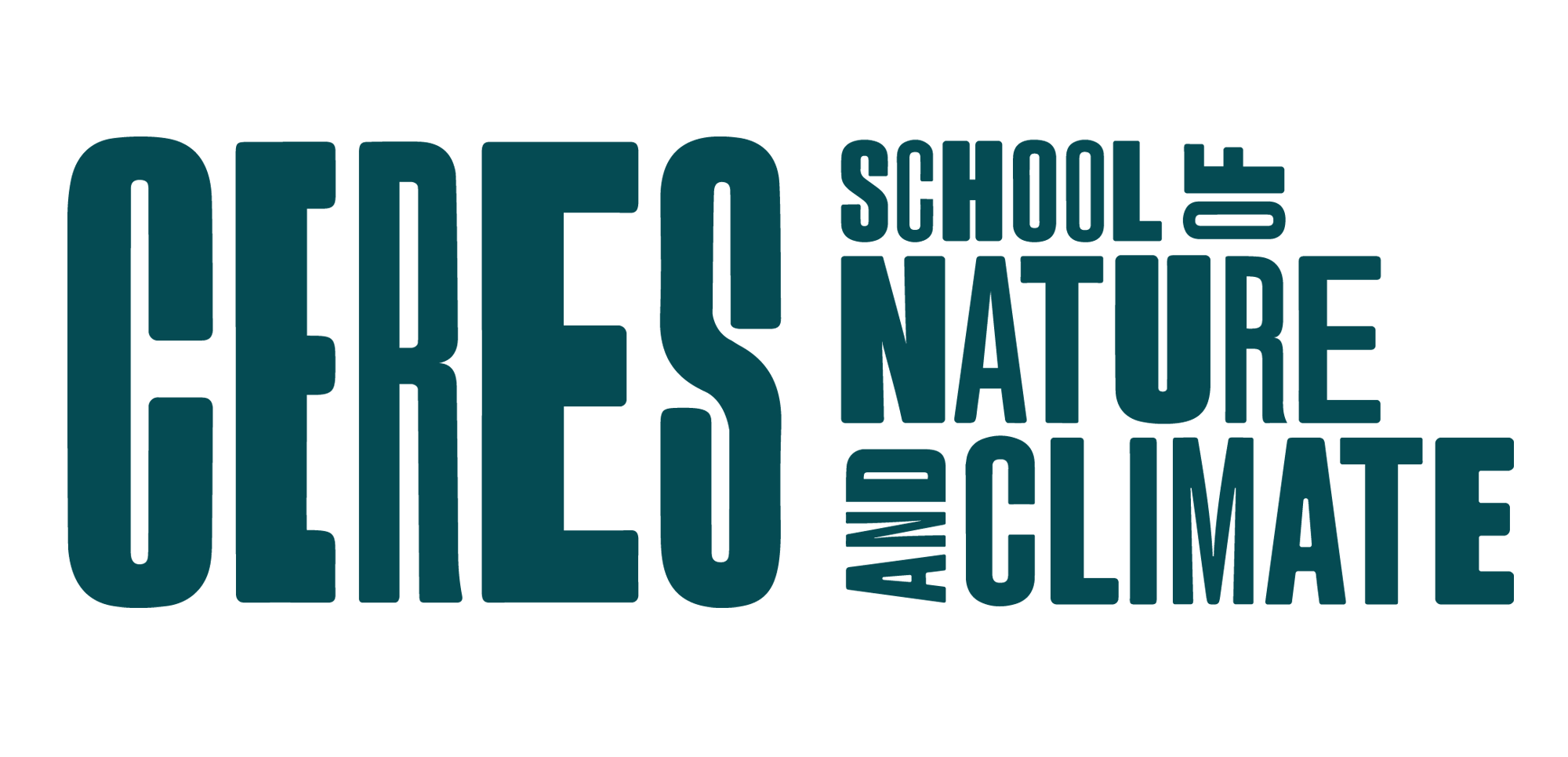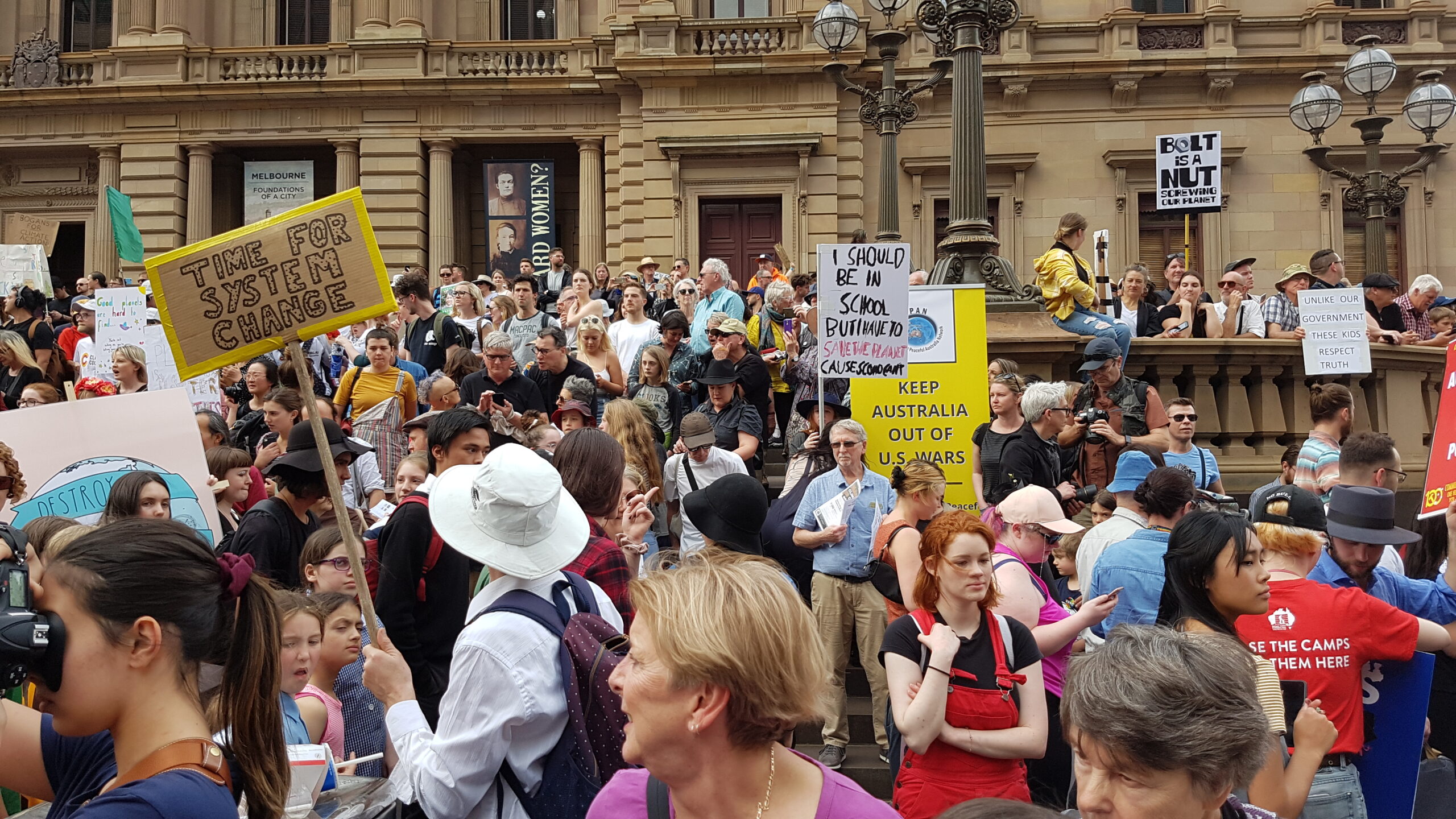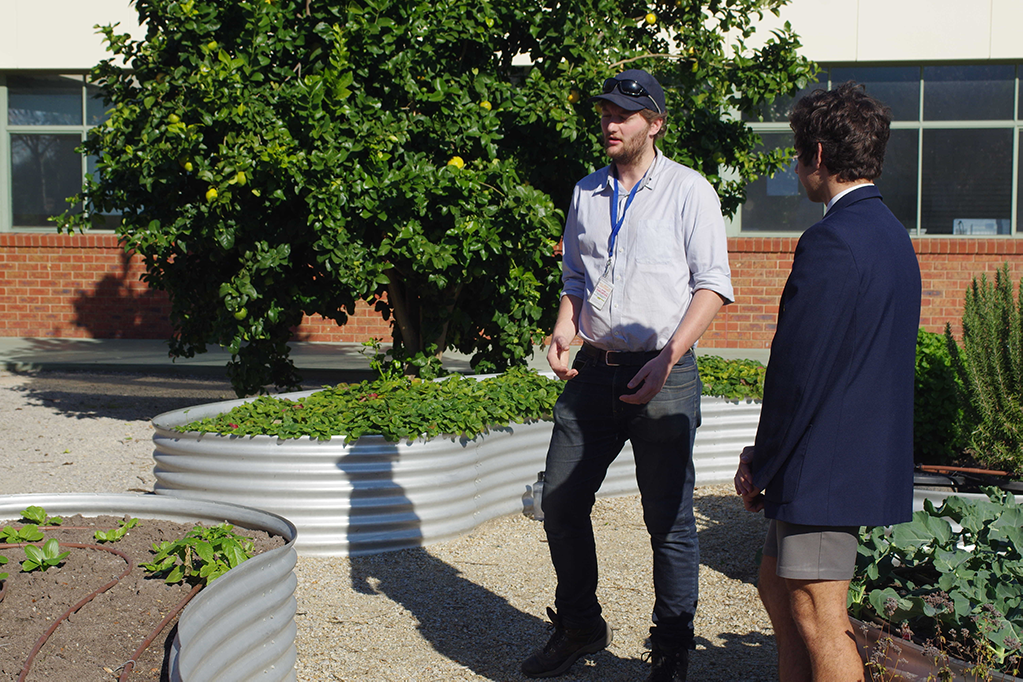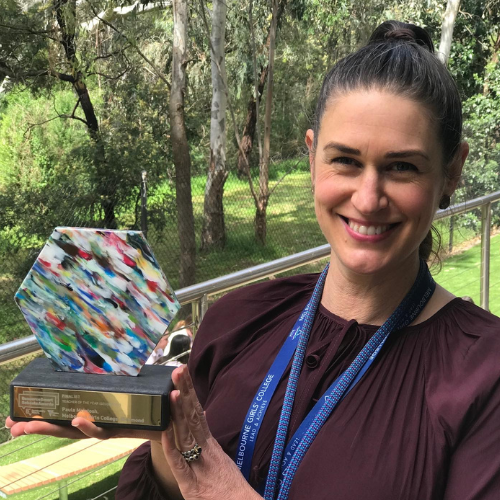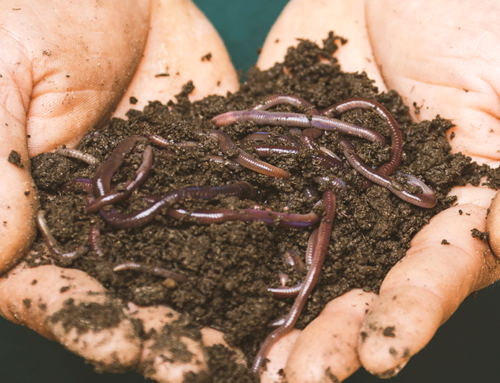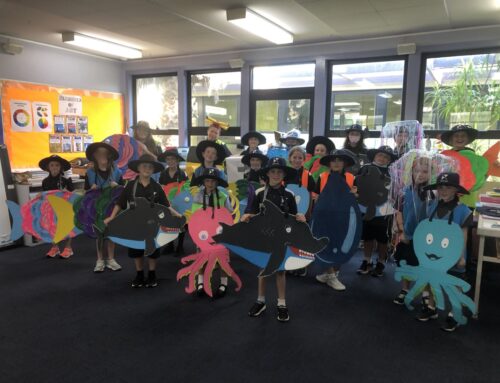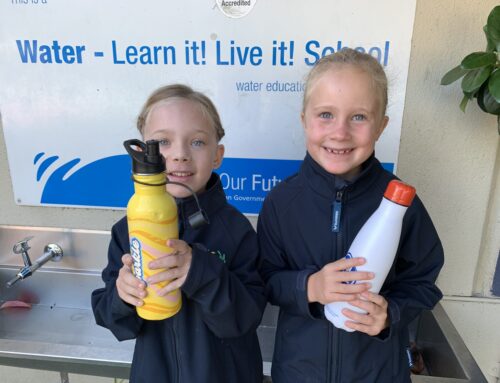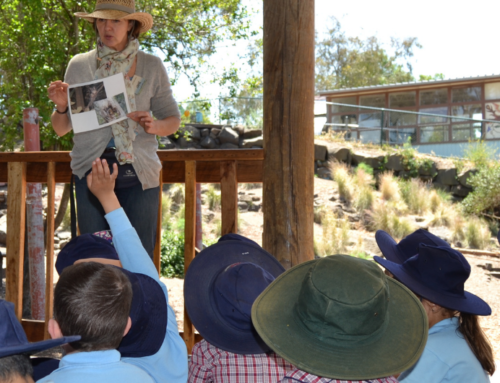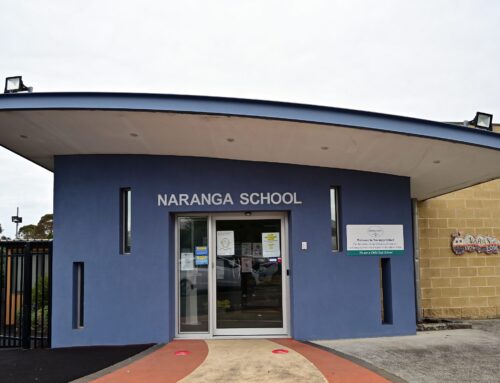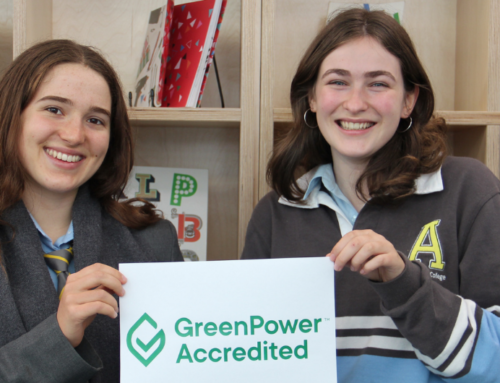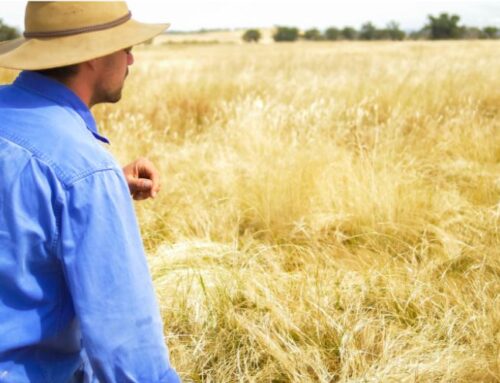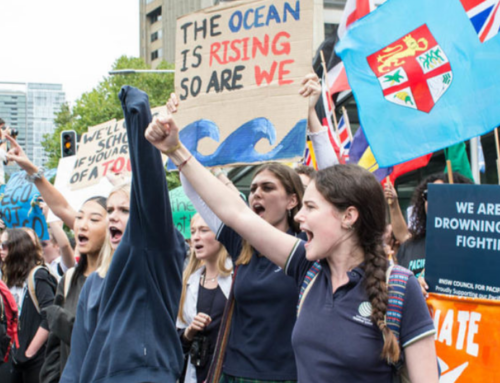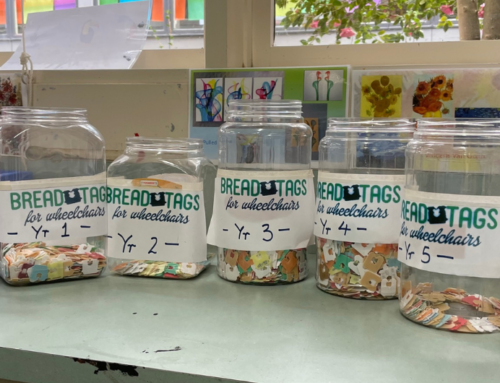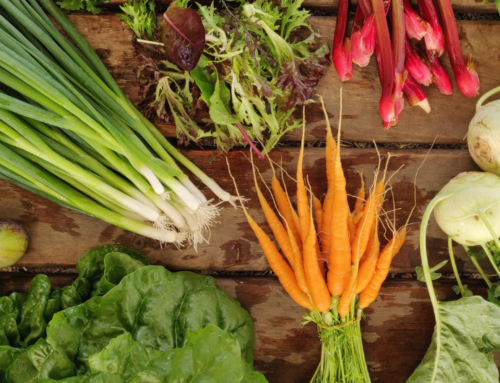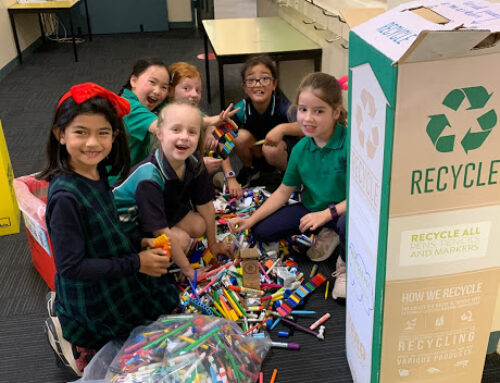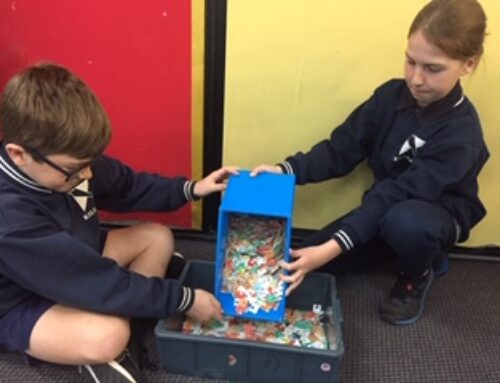What Inspires Me – Dwayne Ganci
April 2022
In this edition of ‘What Inspires Me’ we feature Dwayne Ganci, Sustainability Coordinator at Aitken College. This school has been part of the ResourceSmart Schools program for 14 years, and as a result sustainability is embedded in the curriculum, management and operations of the college. Dwayne talks about his sustainability journey highlights so far, inspiration from other schools, and why teachers need to encourage students take ownership of promoting sustainability.
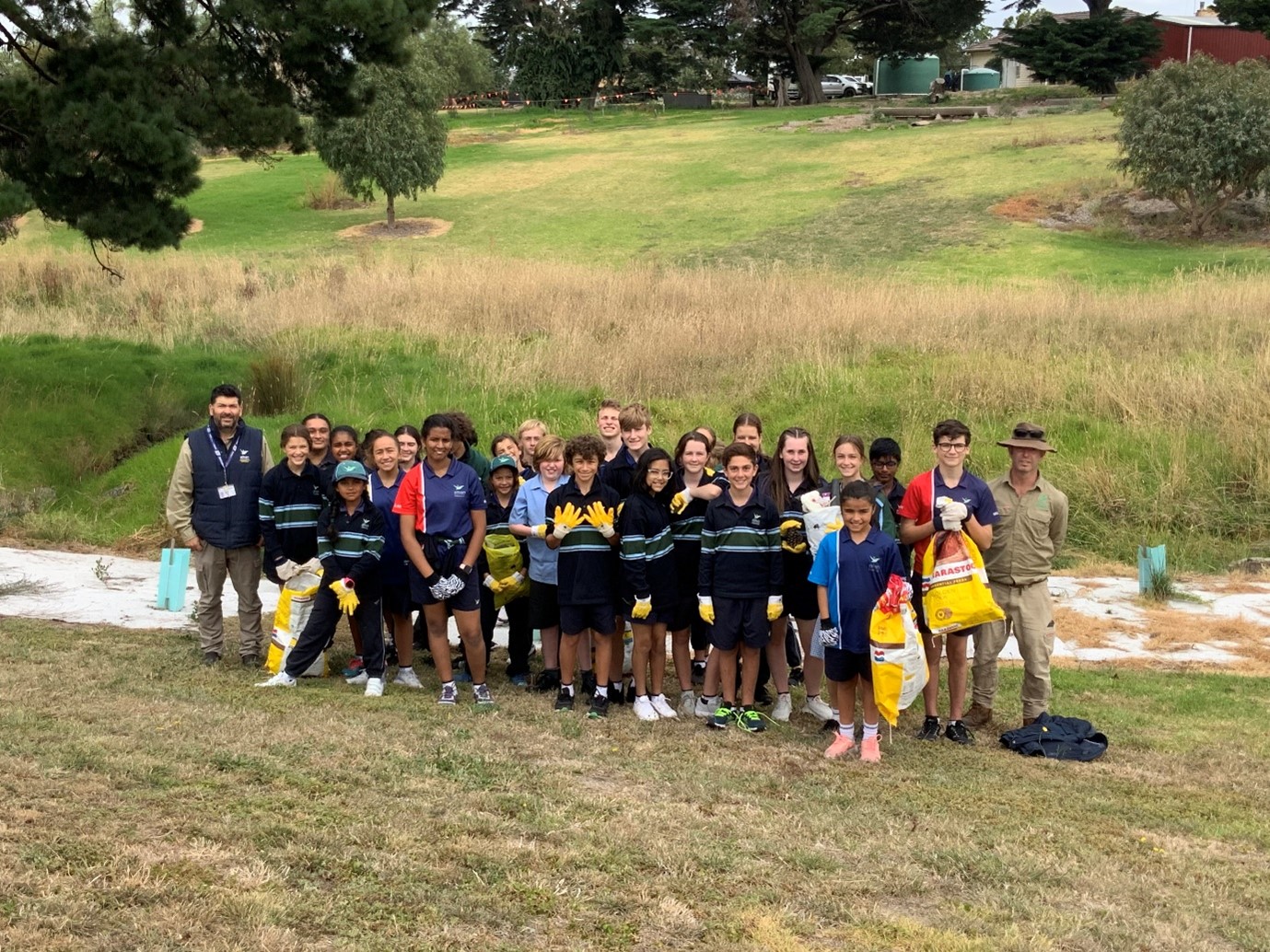
Dwayne (far left) and Aitken College students on Schools Clean Up Day.
1. How did you first get started with environmental education?
I first got started in environmental education when I studied science at university back in the early 90’s, as the course had a major focus on the environment. I still remember the experiment we conducted in ecology looking at lichen as an indicator of pollution. After a few years working as a Research Assistant, I completed my Graduate Diploma of Education as a mature age student and began teaching. It wasn’t until I started teaching Agriculture and Environmental Studies at Aitken College that my appreciation of sustainability and environmental education grew. The grounds of the school are amazing with a bit of a bushland setting and Brodies Creek running through the property of the school.
2. What have been the biggest highlights of your journey so far?
I’m excited to be the Sustainability Coordinator at Aitken College. It is a place where sustainability and environmental education is embedded into the curriculum across primary and secondary learning areas and into the management and operations of the college. Aitken College’s involvement in the ResourceSmart Schools program since 2008 is testament to this. I am amazed how staff and students support and get involved with sustainability initiatives within the college. This year we have expanded our sustainability leadership team with the introduction of a sustainability committee involving both teaching and non-teaching staff and student captains. As well as continuing to have student sustainability leaders in each classroom who help coordinate many of the projects within the school. One such project has been the improvements we have made within our classroom waste management with the introduction of the bokashi compost system. To see the reduction of food scraps going into landfill and turning it into compost for our garden beds is amazing. The work the school has done with the redevelopment and revegetation of the Wildlife Corridor and Brodies Creek within the school grounds to improve biodiversity and to provide an educational resource for the students has also been a highlight.
3. How do you engage with people that are not buying into the sustainability message?
You need to respect that everyone is entitled to their own opinion. In saying that, it is also important that we continue to educate and make people aware about the benefits of living a sustainable lifestyle, not only from an environmental point of view but also from an economic point of view as well. I think it is also important that we encourage students to lead the way and take ownership of promoting the sustainability message as they will be our future leaders. Students much prefer hearing it from other students anyway.
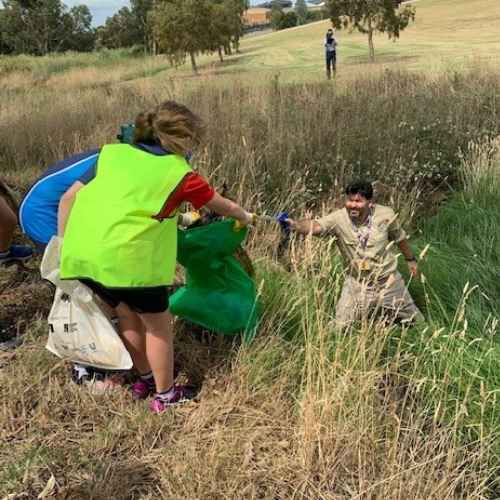
Dwayne leading by example on Schools Clean Up Day
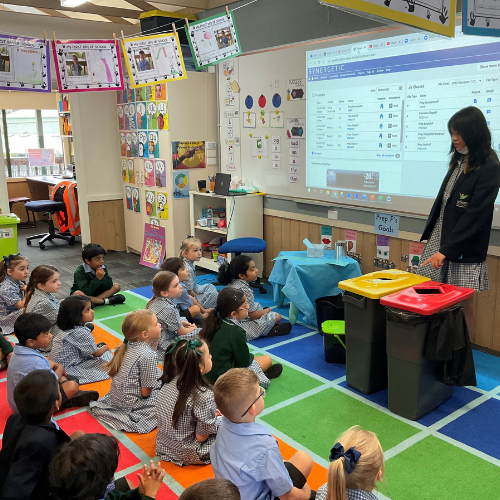
An Aitken College Sustainability Leader talks to the prep students about the school’s waste management system
4. Can you share a school sustainability project or story that you’ve heard about that stood out for you?
Every time you go to a CERES network event you hear about some amazing projects that other schools are undertaking with respect to sustainability. For example, Melbourne Girls College removing bins from there school in 2019. There was a bit of media coverage about what they were doing. I hope this is something that Aitken College will be able to implement in the future. I am also really excited about a project we are doing here at Aitken College. We are encouraging the Aitken community to bring in certain types of plastic bottle caps. The caps will then be melted down in our technology department and then turned into plastic products. The project is only in its early stages.
5. What is your favourite environmental education resource for schools?
There are many resources: ResourceSmart Schools is great for anyone considering sustainable/environmental education. Other resources that have been great for environmental education include Cool Australia, Melbourne Water, Planet Ark etc.
6. If you could be a sustainability superhero, what name would you choose and what powers would you have to make the world more sustainable into the future?
My superhero name would be Plastic Man (who first appeared in Police Comic No.1 in 1941) and have the power to break down non-biodegradable plastic trash. According to an article I read recently, since the introduction of mass-produced plastics in the early 20th century, we have produced an estimated 8,300 million tonnes. Around three-quarters has been thrown away, and 80 per cent of that has drifted into the environment or gone into landfill and eight million tonnes a year end up in the oceans – 5 trillion pieces and counting.
Thank you Dwayne for sharing your story!
Learn more about the school’s sustainability achievements by visiting the Aitken College website.

